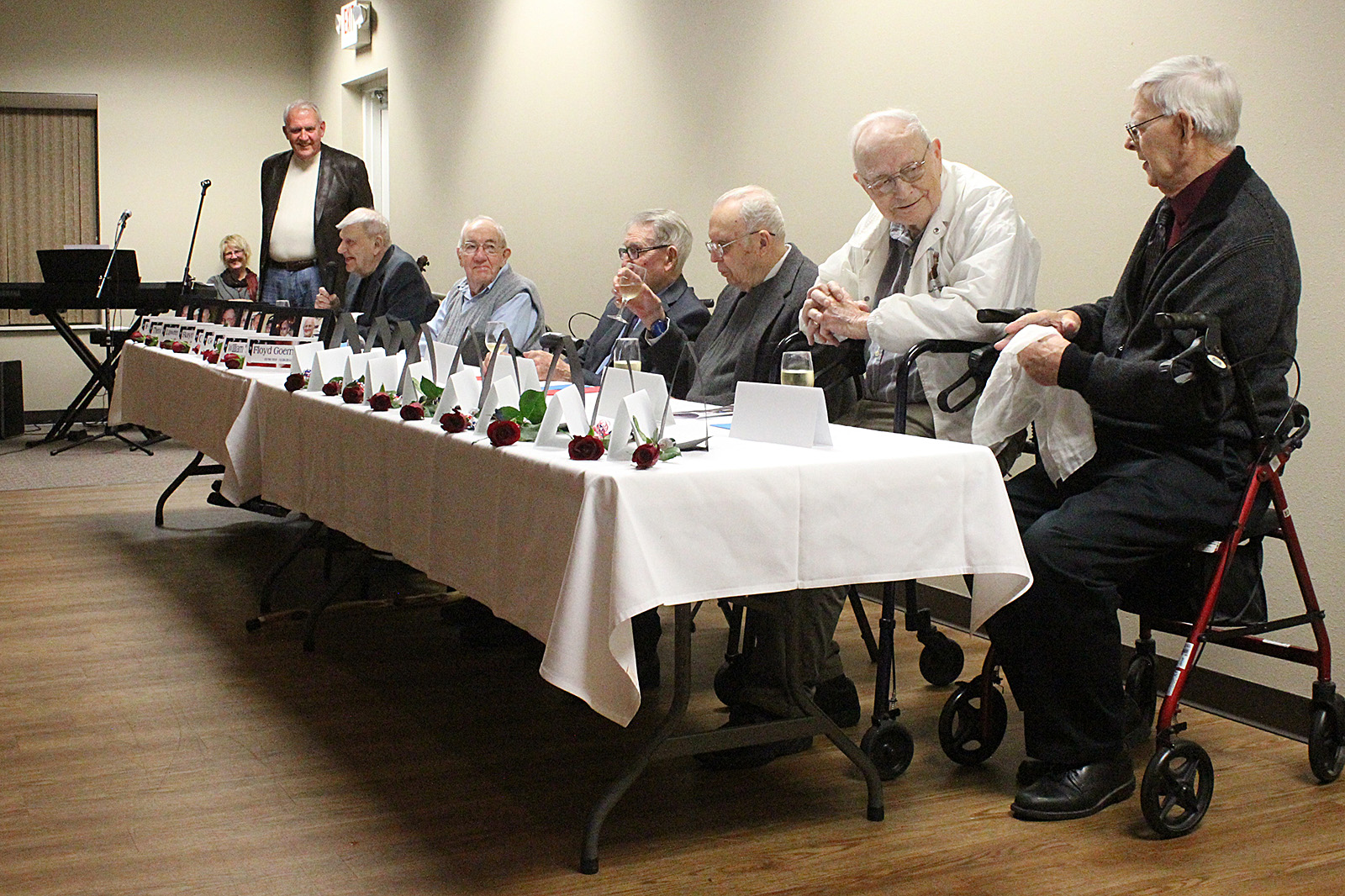 ,
, 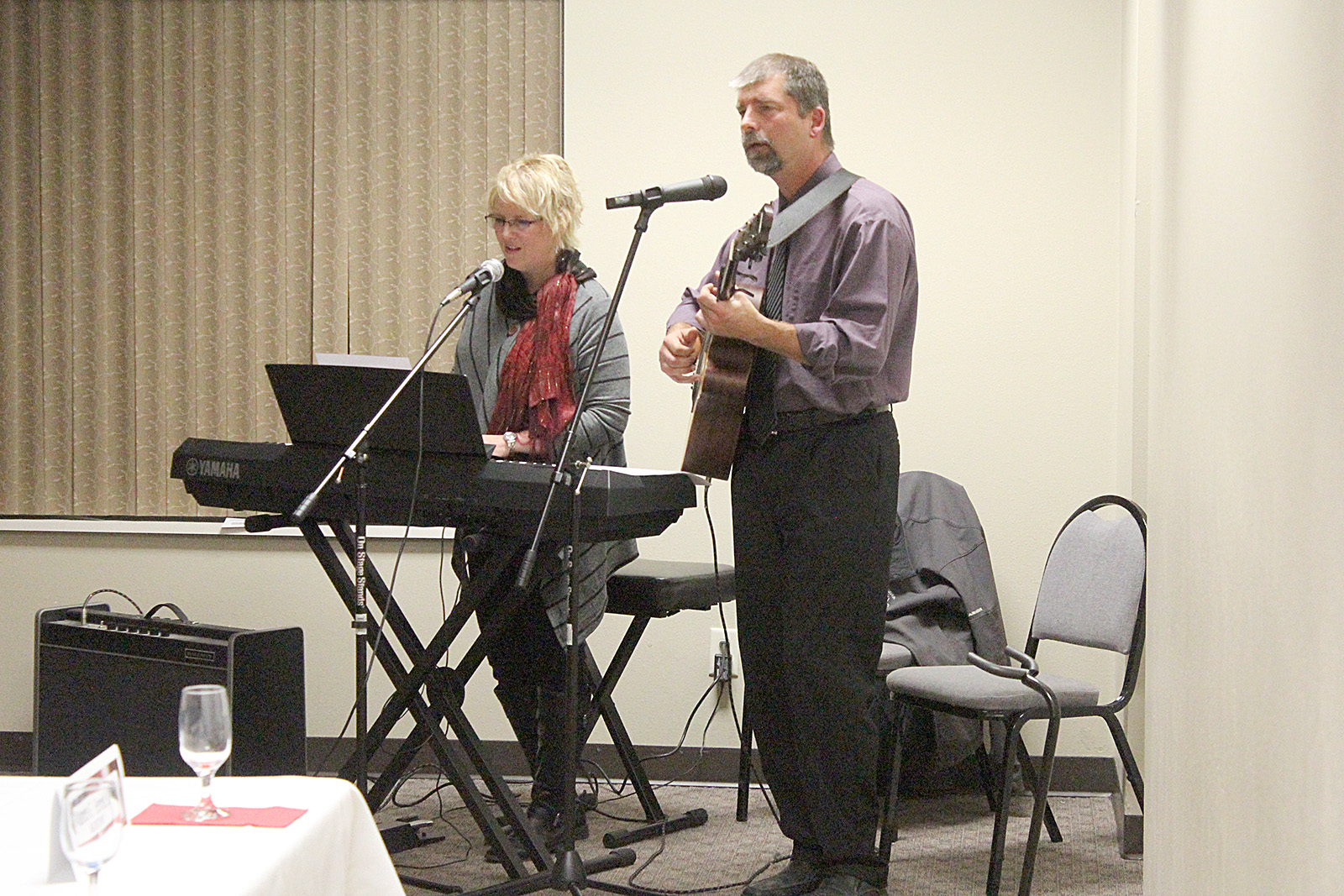 ,
, 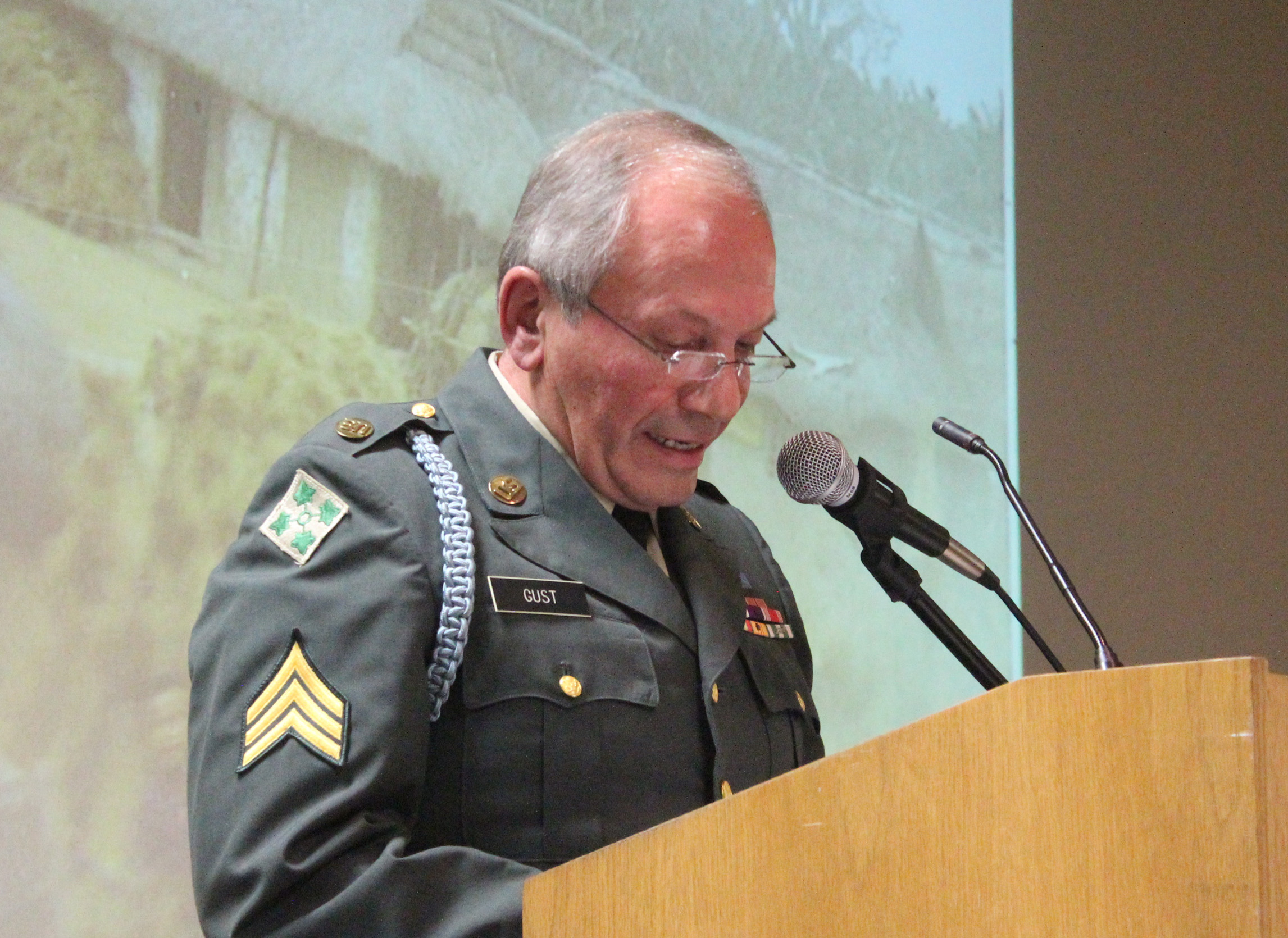 ,
, 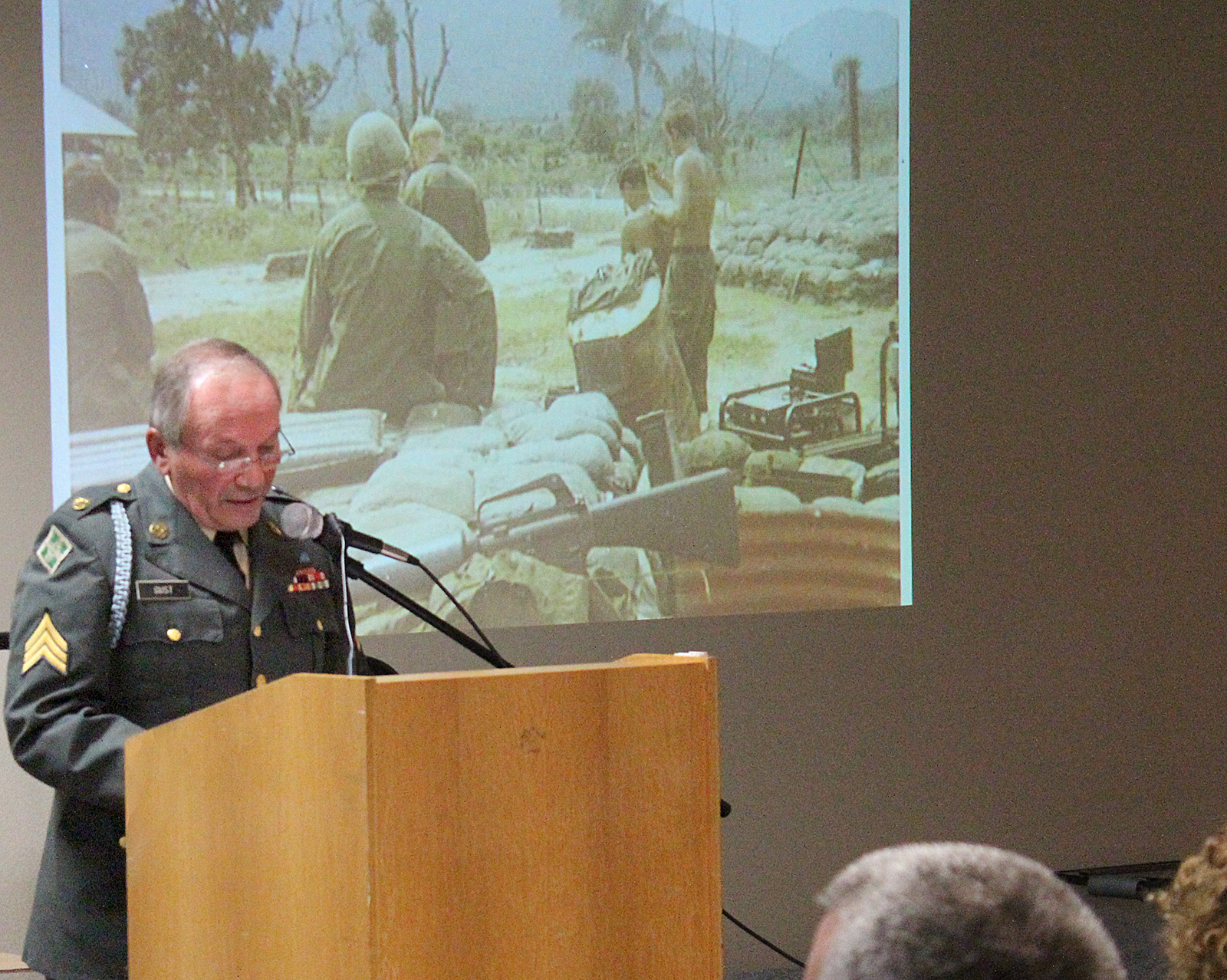 ,
, 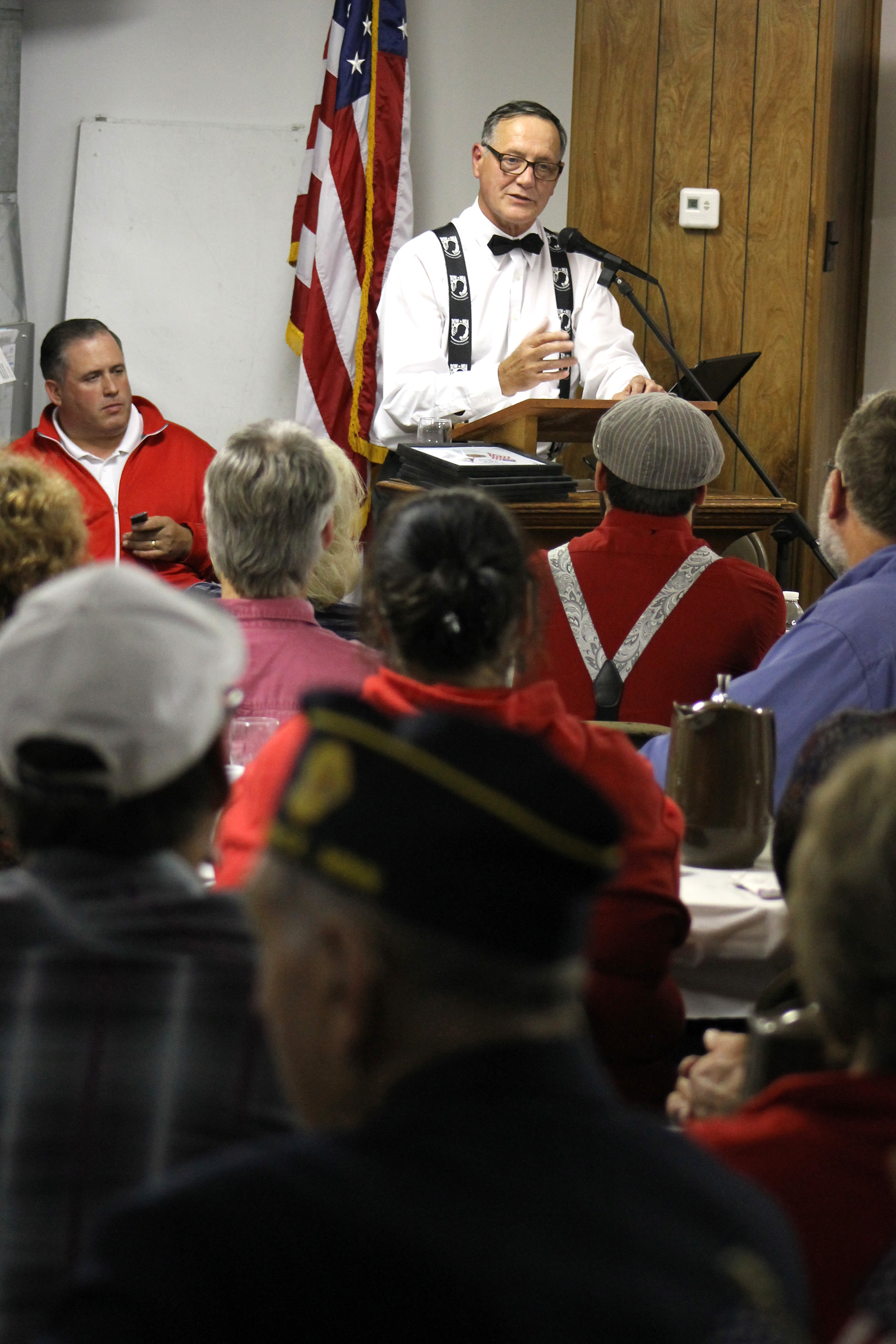 ,
, 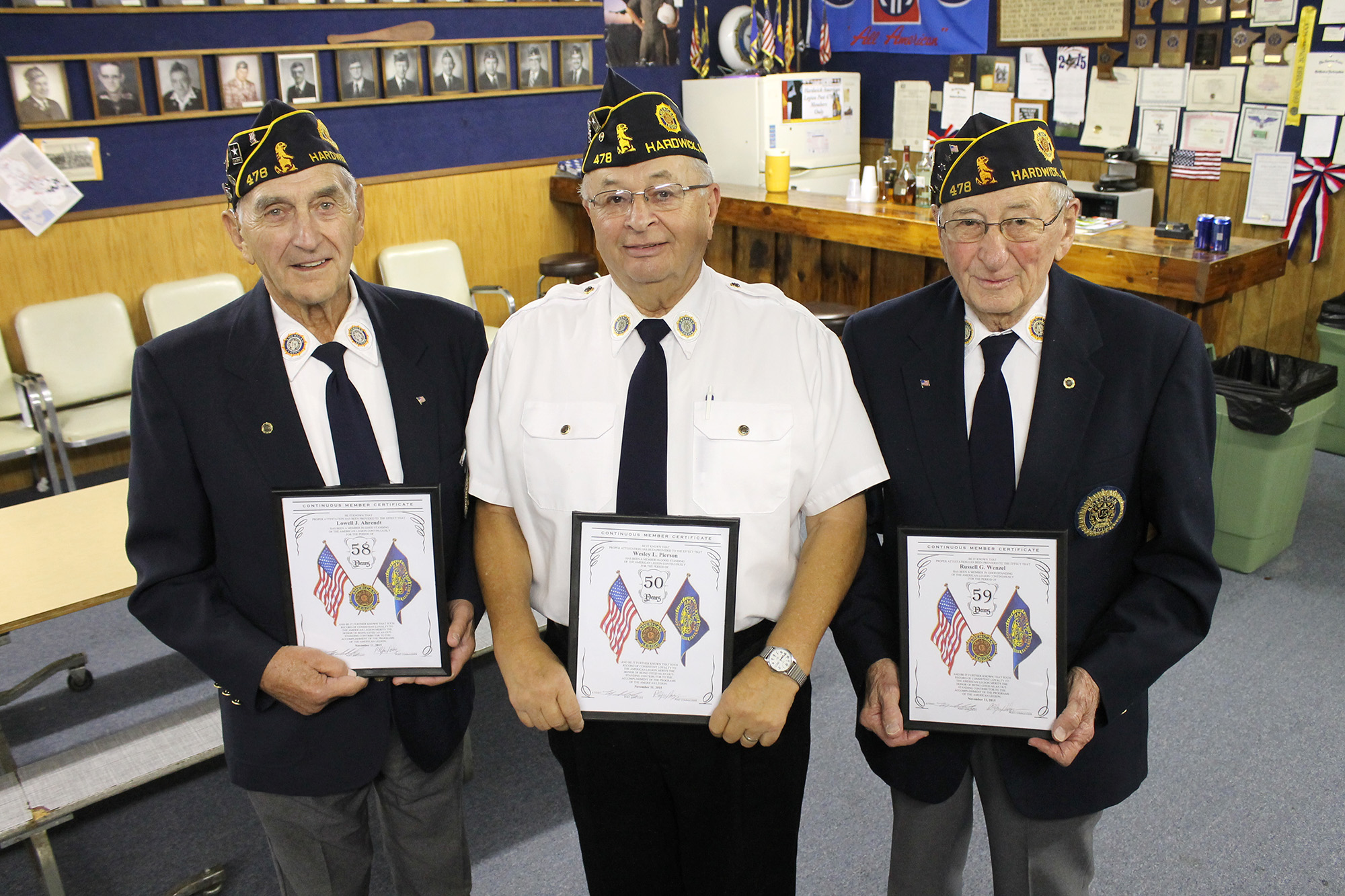
Nine members of the Arthur Moeller American Legion Post 478 were recognized for 50 or more years of continuous membership during their annual Veterans Day Program Wednesday night, Nov. 11, in Hardwick.
Lowell Ahrendt (58 years), Donald Etrheim (58), Harold Etrheim (58), Harold Graphenteen (60), Bill Holling (59), Harold Kindt (56), Wes Pierson (50), Larry Rolfs (50) and Russell Wenzel (59) earned special certificates from the post’s adjutant Mark Coney.
“Together they have 508 years of continuous service to the Legion and the community,” Coney said.
Six of the nine are charter members of the Hardwick Legion Post organized in 1957. Charter members include Ahrendt, Donald and Harold Etrheim, Graphenteen, Kindt and Wenzel.
Only three of the honorees (Ahrendt, Pierson and Wenzel) braved the day’s rain showers to receive their certificates in person and listen to the guest speaker.
Gary Fisher, recently retired Luverne Public Schools superintendent and Vietnam War veteran (1971-1972), shared recollections of being a Vietnam War veteran both on and off the battlefield.
Time, he said, has brought the public understanding that soldiers were not to blame for the war; they simply were serving their country, just like other soldiers before them.
“All veterans are really like brothers. We all fought for a common cause — freedom,” Fisher said.
As illustrations to his Veterans Day message, Fisher selected and played two recorded songs with the more than 100 people who attended the Hardwick event.
Buffalo Springfield’s’ “For What It’s Worth” opened his message.
Later seen as a rallying cry for protests, the song’s words illustrate the freedom enjoyed by those living in a democratic society.
“The veterans of this country have allowed us to be free. They have allowed us to say what is on our minds without fear of retaliation or persecution,” Fisher said.
He ended his speech with The Birds’ song, “Turn, Turn, Turn,” which illustrates a desire for world peace.
“I know it won’t happen in my lifetime. But hopefully our children, our grandchildren, our great-great grandchildren will have the opportunity to know and understand that there can be peace in this world,” Fisher concluded.
Gust: 'Let noperson ever take for granted what wehave here in America'
Luverne’s Glen Gust was drafted at age 19 into the U.S. Army in 1969 to serve in Vietnam.
“Obviously we all had a bad attitude at that point. Our careers were interrupted, future unknown and we had no idea what to expect,” Gust told more than120 people gathered in the Blue Mound Banquet Center for a Veterans Day program Nov. 11.
“But the idea that our country called us to serve was unquestioned and we answered that call.”
By 1969 Gust said he and his fellow infantrymen had learned enough about the escalating conflict in Vietnam to know they didn’t want to be sent there.
As it turns out, his nine-week advanced infantry training was “totally geared for Vietnam,” Gust said. “It was jungle training, navigation and close combat exercises.”
His fate was sealed.
“We were issued our combat gear — fatigues, boots, socks, ruck sack, canteens, M-16 rifle and anything else they thought we needed,” Gust said.
“We were told you can’t trust any of the local villagers. The enemy was man, woman, elders and children. The enemy was underground or hidden in heavy vegetation. … They were rice paddy farmers by day and the enemy at night.”
Gust said he and his fellow combat soldiers had more to worry about than enemy fire.
“The soldiers in the field had to deal with leeches, mosquitos, rats, snakes, poisonous spiders, red thousand-leg centipedes, flies, worms, gnats, chiggers and a thousand more things that hopped, flew and crawled at night.”
He said booby traps were planted everywhere, and many men suffered from malaria, Agent Orange (herbicide), heat exhaustion, jungle rot and monsoon season.
Their mission was to search for and destroy enemy forces and their complexes and supply depots.
“The Central Highlands were mountainous with thick double and triple canopy jungle,” Gust said.
“The maps we were provided with were drawn from aerial photographs, and there was no way the photographs could show what was under that jungle canopy. … That’s where Agent Orange came in.”
He said planes sprayed the jungles with the defoliant to expose enemy base camps and complexes.
Using terrain maps, compasses and grid coordinates to navigate, they traveled by foot (silently) by day and took turns on ambushes and listening posts at night. They got a shower and hot food once every three or four weeks.
“It was monsoon season … so we were constantly wet. … It was a constant battle keeping your rifle working.”
He described jungle warfare as nothing like conventional wars with battle lines and trenches.
“It was fighting your enemy just a few feet away. It was ambushes and close combat. It was firefights that would last a few seconds or a few hours or days,” Gust said, describing an enemy that would pop up and then disappear into miles of underground tunnels and complexes.
He described how it felt to be finally due for some R and R in January of 1971, “But I was covered with ringworm from my neck to my feet, so the medics wouldn’t let me go.”
Instead he got sent to sniper school, which changed his mission to reconnaissance.
In March 1971 he was injured (not seriously) in his legs and back by shrapnel from mortar fire, and by April 26 he left Vietnam for home.
“Most of the soldiers kissed the ground when they got off the plane (in Washington). I was one of them. We were all very happy to be home and survivors of Vietnam.”
But he said they were surprised to be told not to wear their uniforms or any military items, because they could be assaulted due to the anti-war protests going on. They had been completely unaware of the political unrest.
“If the soldiers knew what was happening at home, I’m sure it would have impacted their thinking and made it difficult to remain focused on their mission,” Gust said.
He said society has learned from those times.
“We don’t always agree with the decisions our leaders make, but we do have an obligation to defend freedom and our country when called on,” he said.
“Let no person ever take for granted what we have here in America, and don’t forget that many thousands of men and women in all wars have paid the ultimate price.”


